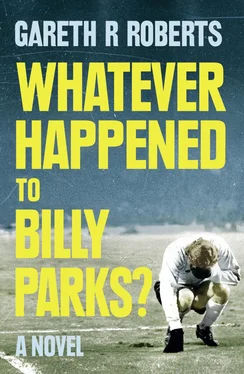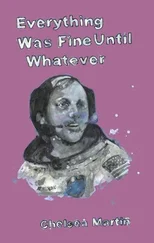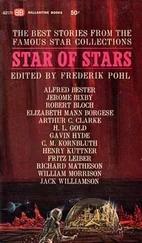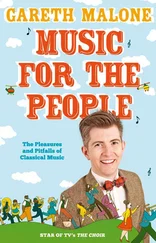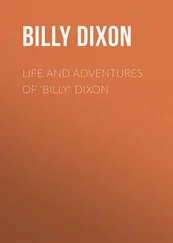The man in the trilby gives a throaty laugh. ‘Of course, they didn’t realise that Bahia grass would struggle in our climes – it doesn’t grip the soil in the same way, you see. It’s rubbish.’
The man smiles and looks over towards me as I start to feel a warm sensation in my temples.
‘That’s where you know me from,’ he says, warming slightly. ‘Brisbane Road. Gerry Higgs. I was head groundsman and coach at the Orient when you went there as a boy.’
Gerry Higgs, of course, Gerry Higgs. I nod my head slowly then rub my temples. There is sweat rushing down the side of my face. Why am I sweating?
‘Gerry Higgs,’ I mumble. ‘Yes, I remember.’ I look at him, my eyes narrowing and clouding as I examine him more closely – Gerry Higgs. Bloody hell. But that doesn’t make sense. ‘Mr Higgs,’ I say, confused, ‘you were old then – you haven’t changed. Why haven’t you changed?’
‘Ah,’ he says, ‘there’s a reason for that, Billy.’
‘What’s that then?’ I try to muster a clever joke, despite the pounding in my head. ‘Porridge every morning? Cod liver oil before you go to bed?’
‘No son,’ he says. ‘I went into the Service a few years ago.’
Service. Service? What is that? What does he mean, Service? I rub my eyes again – my body becomes heavy. Why? What’s happening?
The man’s eyes train on me. I need a drink. I turn away from him.
‘How’s your daughter, Billy?’ I hear him say, as though he’s talking from another room. I note the slightly sinister tone to his voice. I want to answer but I can’t. I want to ask him why he’s mentioned my daughter, Rebecca. But I can’t. I can’t muster an answer. I hear more words, this time from even further away, ‘And your grandson – what’s his name? Liam isn’t it?’
I’m reeling now. What did Gerry Higgs know about my daughter and the boy?
‘I dunno.’ I’m stuttering, trying to shout. ‘How do you know about them?’
The man smiles. ‘I know everything, son. As I told you, I’m in the Service. And now I want to help you, Billy. I want to help you to put everything right. You do want that don’t you? We can do that in the Service.’
There was that word again: Service. What does he mean? My eyes blur and I feel something loosen in my mind. I don’t understand. Gerry Higgs. What does he mean – how can he help me? What is the Service? I look around for something to hold on to, and as I do an image forms in my mind of Becky and Liam – my daughter and my grandson. I’m not with them. I haven’t been with them for bloody ages, years. The image is one of longing and spiky, prickly, guilt. Why has Gerry Higgs mentioned them? Gerry Higgs, the groundsman at the Orient who coached the kids and drove the youth team bus on a Saturday. What did it have to do with him?
Was it really him?
I feel a little explosion in my mind then a cloying lightness that spreads throughout my body, starting with my eyes then rippling downwards, jumping from my torso to my knees that suddenly veer in spastic directions.
No balance, no control.
I fall. What’s happening? What the bloody hell is going on?
Is this it? Is this the end? Is this death?
For a few seconds everything is quiet. Nothing. Not a sound. There’s just me, Billy Parks, Parksy, bloody Billy Parks of West Ham United and England, legend, lying, alone, on the ground, crumpled and small and breathing with a violence that makes my body shudder.
I can hear anxious voices in the distance. ‘See that, that old geezer’s fallen over,’ they say and the boys who’d been playing football start to run towards me.
I’m not old, I think.
And my lips move, silently.
I’m Billy Parks.
2 Contents Title Page Whatever Happened to Billy Parks? GARETH R ROBERTS Dedication For Eirlys Ann Roberts Epigraph ‘Some people believe football is a matter of life and death. I’m very disappointed with that attitude. I can assure you it is much more important than that.’ Bill Shankly Prologue Chapter 1 Chapter 2 Chapter 3 Chapter 4 Chapter 5 Chapter 6 Chapter 7 Chapter 8 Chapter 9 Chapter 10 Chapter 11 Chapter 12 Chapter 13 Chapter 14 Chapter 15 Chapter 16 Chapter 17 Chapter 18 Chapter 19 Chapter 20 Chapter 21 Chapter 22 Chapter 23 Chapter 24 Epilogue Acknowledgements Also by Gareth R Roberts Copyright Конец ознакомительного фрагмента. Текст предоставлен ООО «ЛитРес». Прочитайте эту книгу целиком, купив полную легальную версию на ЛитРес. Безопасно оплатить книгу можно банковской картой Visa, MasterCard, Maestro, со счета мобильного телефона, с платежного терминала, в салоне МТС или Связной, через PayPal, WebMoney, Яндекс.Деньги, QIWI Кошелек, бонусными картами или другим удобным Вам способом. About the Publisher
I was six and I’d cried when I had to leave my cousins’ house. I’d gone on the bus with my mother all the way to Dagenham. All the way, just the two of us – her in a pretty cotton dress with red flowers on it, me in my Sunday bib and tucker. It had been the best day of my life. And when it was time to go I’d felt my head go down and sticky silent tears force their way into my eyes: proper painful tears brought on by the awful, heavy, horrible dread that I was going to have to go back home. I wiped them away furiously because you get nothing for crying, Billy.
My cousins’ house had a back garden. My Uncle Eric had ruffled my hair and Aunty Peggy, gorgeous Aunty Peggy, who always smelled of the promise of something exciting that I didn’t yet understand, had smiled this lovely smile at me and my cousins, twins, Bobby and Keith and their sister Alice, as we ran around, laughing out loud, big carefree childish pointless laughs, and shouted and pretended to be Cowboys and Indians. It was the best day of my life and it had made the whispered tick-tock silence of home seem unbearable. I hadn’t wanted to leave. I wouldn’t leave. I would stay – why couldn’t I stay? Even Mother had seemed happy here in her dress with red flowers on it, sitting in the kitchen drinking only tea, smiling at me as I played.
Smiling at me.
God she was beautiful that day.
We’d left, me with my head down and my mother’s hand in between my shoulder blades. I’d sulked all the way to my home where my father, Billy Senior, never ruffled my hair.
Oh my poor, poor father. The poor, poor bastard.
That day, as I played and my mother laughed, he had sat in his usual place in our house, in the open back doorway of our kitchen, looking out at the back yard and up into the east London sky at the clouds that passed on their heavenly journey, waiting for the day when his own celestial cloud would arrive and mercifully take him away. Every day. Every single silent, wasted, disappearing, bloody day.
Sometimes I would stand in the kitchen with a little ball in my hand and look at the back of his head. Other dads played games, I knew this, I’d heard this, so I would shuffle my feet against the lino and make a noise before Mother would arrive and tell me to be quiet and go and do something else on my own.
Home was sad silence. Home was doing things on my own. Home was listening to the footsteps of my sister Carol, who was ten years older than me, clip-clopping across the stone hallway on her way out of the house to wherever it was she went to seek solace. Home was the slow monotone sobs of our mother and my own breathing as I lay on my tummy and played with little toy cars and little wooden animals that I liked to line up in a quiet row.
Читать дальше
